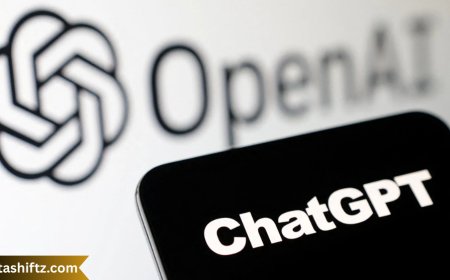Idea Share Price: Trends, Analysis, and Investment Outlook
Introduction
In the ever-evolving Indian telecom industry, Vodafone Idea Ltd. (Vi)—popularly known for its legacy brand Idea—has been a focal point of attention among investors, analysts, and market watchers. The company's journey from being a prominent telecom player to struggling with financial stress and fierce competition has made the Idea share price one of the most watched and debated in Indian equity markets.
This blog post offers a detailed analysis of Idea’s share price movements, factors influencing its valuation, key financials, market position, investment risks, and future prospects. Whether you’re a retail investor or a market enthusiast, understanding Idea’s trajectory is crucial in assessing its potential in India’s competitive telecom landscape.
Company Overview: Vodafone Idea Ltd.
About the Company
Vodafone Idea Ltd. was formed in 2018 through the merger of Vodafone India and Idea Cellular, aiming to create a telecom giant to compete with Reliance Jio and Bharti Airtel. Despite a strong subscriber base, Vi has faced challenges in maintaining profitability and sustaining operations due to high debt, regulatory dues, and intense price competition.
Key Company Information
| Parameter | Details |
|---|---|
| Company Name | Vodafone Idea Limited (Vi) |
| Legacy Brand | Idea Cellular |
| Incorporated | March 31, 1995 |
| Industry | Telecommunications |
| Headquarters | Mumbai, Maharashtra |
| CEO | Akshaya Moondra |
| Market Share (2024) | ~18% |
| Total Subscribers (2024) | ~210 million |
Historical Share Price Performance
The Idea share price has experienced extreme volatility since the merger, primarily driven by the company's financial health, sectoral developments, and investor sentiment.
Historical Share Price Snapshot (Last 5 Years)
| Year | Opening Price (₹) | Closing Price (₹) | Annual Change (%) |
|---|---|---|---|
| 2020 | 6.80 | 10.40 | +52.9% |
| 2021 | 10.40 | 13.25 | +27.4% |
| 2022 | 13.25 | 8.90 | -32.8% |
| 2023 | 8.90 | 12.50 | +40.4% |
| 2024 | 12.50 | 13.85 (June 2025) | +10.8% YTD |
Factors Influencing Idea Share Price
Key Price Drivers
-
Debt and AGR Dues
Massive dues owed to the Department of Telecommunications (DoT) under Adjusted Gross Revenue (AGR) have put immense pressure on Vi’s finances. -
Fundraising Announcements
Periodic fundraising through equity dilution or FPOs directly impacts stock price. -
Government Relief Packages
Policy measures and moratoriums on dues have periodically provided short-term support. -
ARPU Growth
Average Revenue Per User trends are vital in assessing operational recovery. -
Market Competition
Aggressive pricing by Jio and Airtel affects Idea’s revenue and customer retention. -
Subscriber Trends
Gains or losses in subscriber base indicate the company’s relevance in the market. -
Promoter Activity
Shareholding changes by Vodafone Group and Aditya Birla Group impact investor confidence.
Financial Snapshot of Vodafone Idea
Despite consistent revenue, Vi continues to struggle with profitability due to high interest obligations and capex requirements for 4G and 5G upgrades.
Key Financial Metrics (₹ in Crores)
| Financial Year | Revenue | EBITDA | Net Loss | EBITDA Margin | ARPU (₹) |
|---|---|---|---|---|---|
| FY 2020-21 | 42,120 | 15,460 | -44,230 | 36.7% | ₹115 |
| FY 2021-22 | 38,630 | 15,180 | -28,300 | 39.3% | ₹124 |
| FY 2022-23 | 42,180 | 16,230 | -29,230 | 38.5% | ₹132 |
| FY 2023-24 | 45,100 | 17,700 | -24,580 | 39.2% | ₹137 |
Observations:
-
Revenue has shown modest improvement.
-
Net losses persist due to debt servicing and limited monetization avenues.
-
ARPU growth is a positive sign of improving operational efficiency.
Peer Comparison
Vodafone Idea vs. Peers (as of June 2025)
| Company | Share Price (₹) | ARPU (₹) | Subscribers (Mn) | Market Cap (₹ Cr) |
|---|---|---|---|---|
| Vodafone Idea | 13.85 | ₹137 | 210 | ₹67,000 |
| Bharti Airtel | 1,160 | ₹197 | 420 | ₹6,75,000 |
| Reliance Jio* | Not listed | ₹186 | 450 | ₹8,50,000 (est.) |
Recent Developments
-
₹18,000 Cr FPO (April 2024):
Raised funds through a successful follow-on public offer to improve network quality and 5G deployment. -
Network Expansion:
Plans to launch 5G in key metro cities by FY 2026. -
Debt Conversion by Govt:
The Indian government has taken equity in exchange for dues, becoming the largest shareholder. -
Focus on Digital Services:
Introduction of Vi Games, Vi Movies, and Music platforms to drive digital revenue.
Risks and Challenges
Risks for Investors
-
Heavy Debt Burden: Over ₹2 lakh crore in liabilities.
-
Stiff Competition: Jio and Airtel have deeper pockets and better infrastructure.
-
Technology Lag: Slower 4G/5G rollout reduces customer appeal.
-
Equity Dilution: Frequent fundraising can reduce shareholder value.
-
Limited Cash Flows: Operational gains insufficient to support capex and interest payments.
Future Outlook and Investment Potential
Despite its challenges, Vodafone Idea is attempting a turnaround by:
-
Improving network quality
-
Monetizing assets
-
Launching digital services
-
Strengthening its brand via partnerships and advertising
Positive Triggers for Share Price Upside
-
Successful 5G Launch
-
Sustained ARPU Growth
-
Strategic Investor Participation
-
Government Support
-
Subscriber Retention
Technical Indicators (As of June 2025)
| Indicator | Value | Signal |
|---|---|---|
| 50-Day Moving Average | ₹13.05 | Bullish |
| 200-Day Moving Average | ₹11.60 | Bullish |
| RSI | 61 | Neutral-Bullish |
| MACD | Positive | Bullish Cross |
Conclusion
The Idea share price reflects the high-risk, high-reward nature of investing in a company undergoing structural transformation in a highly competitive environment. While the company’s fundamentals remain challenged, strategic funding, government backing, and improved operational focus have rekindled investor interest.
For retail investors, Vodafone Idea is a speculative play that requires close monitoring. It may suit aggressive investors willing to wait for long-term recovery, but not ideal for conservative portfolios. If the company can execute its turnaround plans and survive sector consolidation, there may be value unlocked in the future.





























